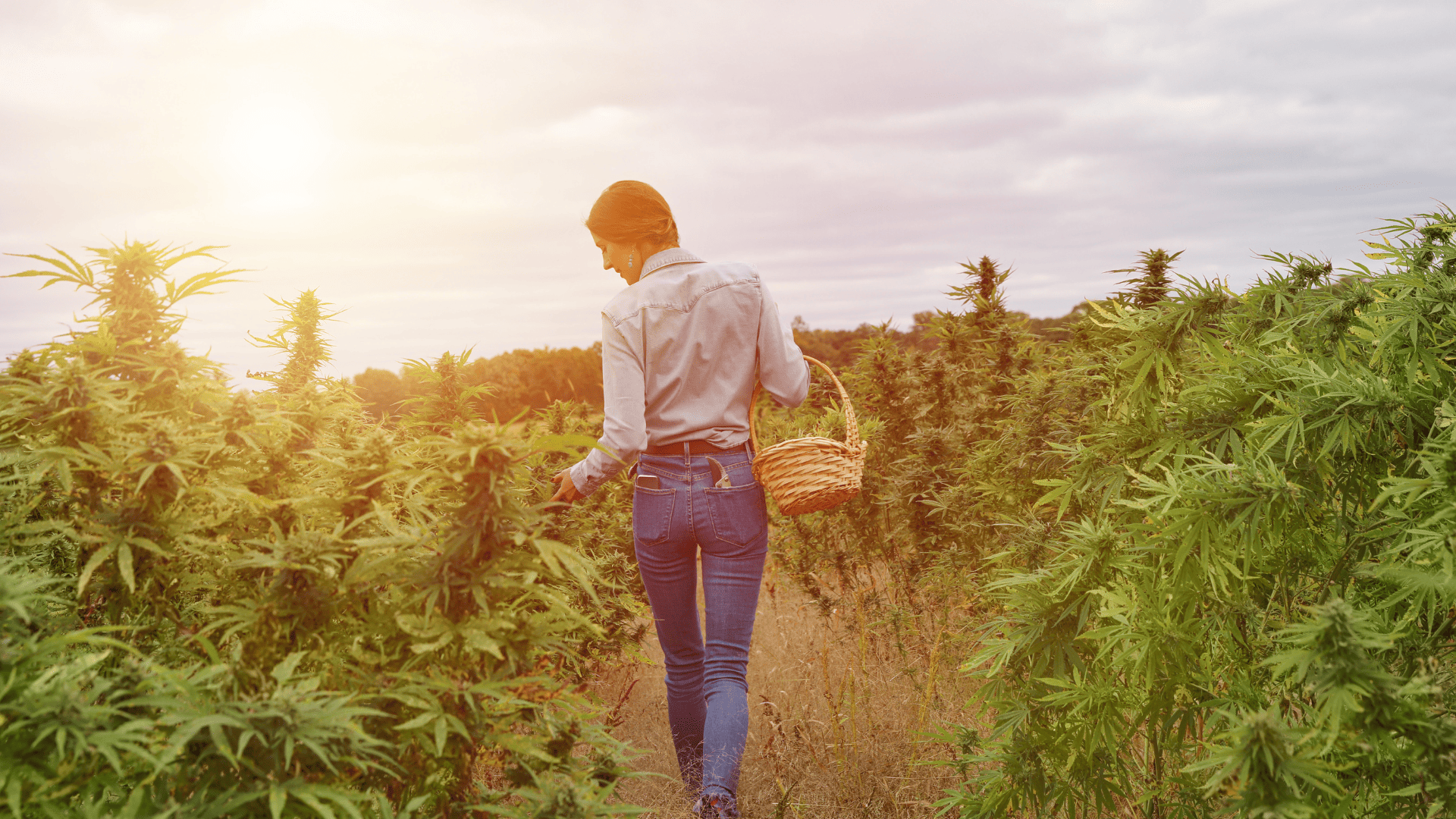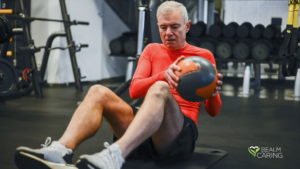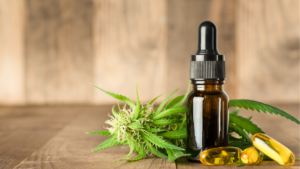Women’s Healing and the Benefits of Cannabis
Throughout history, the portrayal of the cannabis community has been heavily biased towards men, from the earliest times to the current push for legalization. However, this does not reflect the truth. In ancient societies, women played significant roles as both herb gatherers and healers, utilizing cannabis for medicinal purposes.
According to historical and archaeological evidence, the use of the cannabis plant for medicinal purposes dates back to approximately 2900 B.C.E. in China. Early civilizations documented its use for ailments such as rheumatism, gout, malaria, and pain relief. What is less known is that women in these communities also utilized the therapeutic benefits of cannabis. For instance, the Ebers Papyrus, an ancient Egyptian collection of medical texts from 1550 B.C.E., mentions the use of cannabis for vaginal inflammation. Physical evidence from the 4th century also points to the use of cannabis for easing childbirth. Over time, the use of cannabis spread from the Eastern regions to the Western regions, gaining popularity and becoming somewhat of a sensation.
Women’s Influence in Cannabis
During the 19th century, a time known for its strict social norms, Queen Victoria was prescribed cannabis by her doctor to alleviate menstrual cramps. Throughout this time, the use of cannabis oral extracts and tinctures was described in Western medicine to treat uterine hemorrhage, menorrhagia, dysmenorrhea, and gonorrhea, as well as to increase labor contractions. Women’s involvement in cannabis has not only been limited to consumption. Several women directly influenced policy change as they bravely challenged societal norms, like Margaret Mead, an American cultural anthropologist. She advocated for cannabis legalization in the 20th century and criticized the punitive approach towards adult drug use, which is still prevalent today.
Mary Jane Rathbun, also known as Brownie Mary, notoriously baked nearly 600 cannabis-infused brownies a day to distribute at the San Francisco General Hospital where she was a volunteer in the AIDS ward. She eased the suffering for countless individuals experiencing wasting syndrome and her advocacy marked the beginning of the de facto legalization of medicinal cannabis usage by people who are afflicted with AIDS.
In 1975, Robert Carl Randall (1948-2001) and his wife, Alice O’Leary Randall, were arrested for cannabis cultivation after discovering the plants’ benefits for Robert’s glaucoma. Together they fought the conviction and Robert became the first individual to gain legal access to medicinal cannabis in 1976. Today, Alice carries the mission on and is leading the charge in preserving the records of truly heroic medical cannabis pioneers.
Realm of Caring founders Heather Jackson and Paige Figi set out on a mission to help individuals improve their quality of life with plant-based therapies. They opened a free support line, joined forces with leading researchers, and got to work on changing policies for increased, equitable access to cannabis.
Women have and continue to disrupt the cannabis industry as activists, consumers, and business owners. According to the 2023 report, “Diversity, Equity & Inclusion in the Cannabis Industry,” women account for 39% of executives in cannabis.
As a woman-founded and led organization at Realm of Caring, we are proud to contribute to this statistic, relying on the hard work and dedication of these amazing women on our team. To commemorate Women’s History Month, we would like to highlight some incredible women working at the Realm of Caring Foundation and those we work with in this collective space. We asked what inspires their work, keep reading for their impactful responses!
What challenges do you face as a woman in the cannabis industry? How do you overcome those challenges?
Sasha Kalcheff-Korn at Realm of Caring believes the challenges women face in the cannabis industry “echo challenges of several other industries. A low percentage of women are in this industry, let alone leading it. Year after year more women are entering the space, which I see as truly important. Women, mother’s specifically, were the most powerful segment of the movement to federally legalize hemp and are instrumental in bringing the War on Drugs to an end. I am so proud to be in an organization that is woman-founded, which encompasses some of the most fierce advocates for policy change. The best I, personally, can do to overcome challenges is to keep showing up and driving our mission forward so we may continue to close this gap that separates people from the healing properties of a plant.”
Meital Manzuri of Manzuri Law / 420 Attorneys shared that “initially, as a woman in the cannabis industry, I was not aware of the special challenges that I faced because I was just excited to put my business together and help folks in the space. Several years in, it became apparent that, since I work mostly with men, there was a certain barrier to overcome when it came to trusting me as the expert and allowing me to be the strong leader that I am. Initially, it helped to surround myself with teammates and allies that were female in order to bolster my firm’s authority and advocate on behalf of women’s place in the space. Overall, I think that our strategy and messaging throughout the years has pushed the envelope in the space and helped shape the increasing trend of powerful women in the space.
Jan Morton at Realm of Caring draws attention to the fact that “the cannabis industry has historically been male-dominated, and stereotypes persist still today. Women face hurdles when offering education on cannabis because many assume that women are less knowledgeable than men in this industry. This was especially seen for me when I operated my own CBD retail store – from customers to suppliers, I truly felt that I had to PROVE my knowledge more than a man would.”
Jennifer Sandoval at Realm of Caring has also faced her fair share of challenges as a woman in the cannabis industry, “with the lack of widespread knowledge about CBD and THC among the general population”. However, she overcomes this by “staying informed, communicating effectively, building relationships, leading by example, and seeking support.”
Sarah Maestranzi of Make Waves shares roadblocks when it comes to “the general taboo and stigma around cannabis, (which) is definitely difficult to discuss with people who are more set in their ways. I think the best defense is education. Working with various cannabis brands and advocates over the years has taught me so much about the benefits of the cannabis plant, both for recreational and medicinal purposes. I believe anecdotal evidence carries significant weight and can be the key in helping people truly understand the power of the plant.”
What advice do you have for other women looking to make an impact in the cannabis space?
Sandoval’s advice is to “keep taking up space, be bold, and ask questions, while her inspiration comes from helping spread knowledge and improving people’s lives through CBD.”
Morton recommends to “be true to yourself, stand firm in your beliefs & knowledge and don’t be afraid to rock the boat or make waves!”
Maestranzi advises to “educate yourselves! Knowledge is power and there are many resources available to fill yourself with the necessary knowledge to be confident in your stance on cannabis. Advocating about how cannabis personally helps you whether that be for relaxation, focus, or pain relief can strengthen your voice on the topic.”
Manzuri notes that “the cannabis space has changed a lot and having an impact now is more important than ever. As the market changes, we have to continue to push through as leaders. My advice would be authentic, to get out there in the world, leave the computer, leave the phone and connect with others in the space to create long lasting relationships.”
Kalcheff-Korn suggests “deeply understand the prohibitionist paradigm and the consequences that have come of it, as well as the impact women have and continue to have in this space. Your voice absolutely matters and will drive change forward.”
What inspires you in your work?
Tammy Pettigrew of The Cannabis Cutie shares “My inspiration is the beauty of this plant. I look at it and think about all of the parallels between the historical treatment of this plant and what it’s like to be a woman. We both know what it’s like to be heavily misunderstood, accused of causing men to become dangerous, to be accused of being “witchcraft,” and the reason that society suffers. We both understand what it’s like to be criminalized for things beyond our control, even when there is no victim. Yet we still thrive. We still survive. The truth is we are both misunderstood and healers. We nurture. We are sources of inspiration, and our mere existence helps the world thrive. We help aid others well-being, and when treated with intention we act as the greatest ally. We bring a love to the world that is aligned with spirit and we do it so beautifully.
This plant helps me to be a better woman, mother, sister, aunt, and friend. If the cannabis plant can survive all of the lies told by men decade after decade and still overcome, so can we.”
Kelly Pintos of Make Waves is inspired by “the countless stories of all the lives that are positively changed by cannabis. From harm reduction to medicinal purposes, even healthy recreational use- cannabis has profoundly helped millions and it feels like an honor to be a part of spreading that message.”
Morton’s “inspiration is knowing that cannabis is legitimate therapy and should be cost effective and legally accessible for everyone, no matter where they live!”
Manzuri is inspired by “the impact that I have daily on businesses and the market overall. I get to be at the forefront of all of the market trends and it’s exciting to learn and watch firsthand what happens to a brand new market because cannabis extends beyond the plant and into so many different people’s lives. I love to learn and analyze and speculate what each new law, trend or regulation means, overall to the space and how that can help my clients in their businesses to anticipate the ever changing world of cannabis laws, rules and regulations.”
“The impact of cannabis on individuals in need serves as a source of inspiration for me,” explains Maestranzi. “Engaging with firsthand accounts and encountering many individuals whose lives have been positively transformed by cannabis is very moving.”
Kalcheff-Korn finds direct inspiration from the “community who Realm of Caring serves. We talk to individuals all over the world, every day, who are in need of support, knowledge, and access to quality products. Their bravery and commitment to finding solutions for their health, or the health of a loved one, motivates me to continue to work towards equitable access.”





